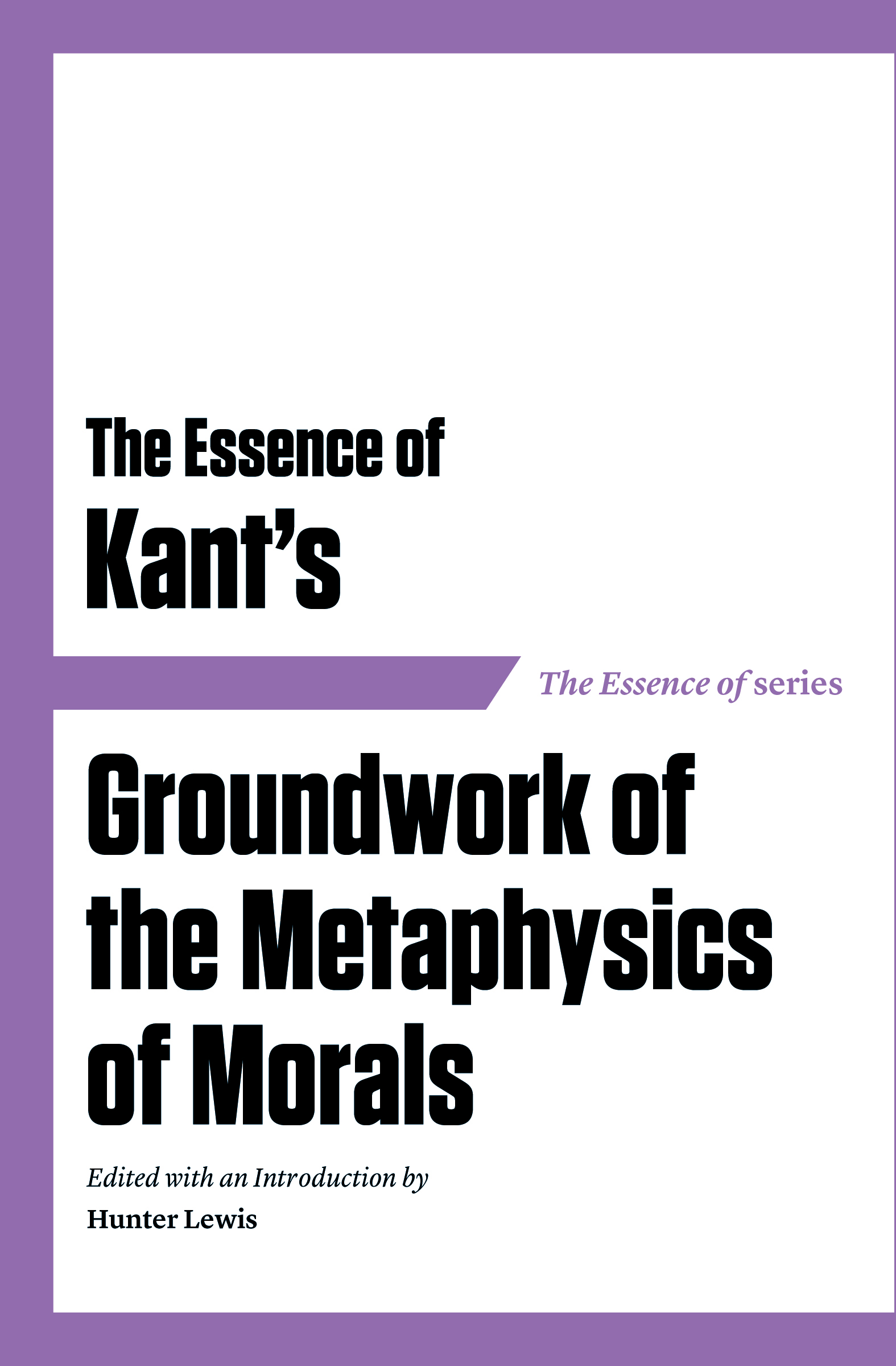Summary
Axios Press’s Essence of . . . series takes the greatest works ever written in the field of practical philosophy and pares them down to their essence. We select the best passages—the ones that are immediately relevant to us today, full of timeless wisdom and advice about the world and how best to live our lives—and leave behind the more obscure or less important bits. Our selections are not isolated: they flow together to create a seamless work that will capture your interest and attention from page one. And we provide useful notes and a solid introduction to the work.
Immanuel Kant (1724–1804), a German who lived and taught in Konigsberg, Prussia, is often considered the greatest Western philosopher. One of his chief aims was to refute the moral skepticism of British philosopher David Hume (1711–1776). He wanted to show that reason can give us moral and ethical principles on which to base our life and actions, principles that no one can doubt.
In Kant’s view, we do not derive ethics from experience, which can vary from person to person, nor from our emotions. We derive it from a universal logic. Ethics are not relative nor changing nor variable according to circumstances. They are fixed and the same for everyone at all times.
Kant’s argument is set out in this extraordinary little book, one of the most influential books of world history. By judicious cutting and editing the philosopher’s own words, we have made it all perfectly understandable by everyone.
About the Author
Immanuel Kant (1724–1804), a German who lived and taught in Konigsberg, Prussia, is often considered the greatest Western philosopher. He exerted an immense influence on the intellectual movements of the 19th and 20th centuries.
About the Editor
Hunter Lewis, co-founder of global investment firm Cambridge Associates, has written nine books on economics and moral philosophy. He has served on boards and committees of fifteen leading not-for-profit organizations, including environmental, teaching, research, and cultural organizations, as well as the World Bank.
Introduction
Preface
Section I
Transition to a Philosophy of Morals
Section II
Transition from Popular Morals to a Philosophy of Morals
Section III
Transition from the Metaphysics of Morals to the Critique of Pure Practical Reason
Index
Preface
Physics has an empirical and also a rational part. It is the same with Ethics; but here the empirical part might also be called practical anthropology, the rational part also be called morals. . . .
Is it not of the utmost necessity to construct a pure moral philosophy which is not just empirical or belonging to anthropology? That such a philosophy is possible should be evident from the common idea of duty and of the moral laws. Everyone must admit that if a law is to have moral force, i.e., to be the basis of an obligation, it must carry with it absolute necessity; that, for example, the precept, “Thou shalt not lie,” is not valid for men alone; other rational beings must also observe it; and so it is with all the other moral laws properly so called. Therefore, the basis of obligation must not be sought in the nature of man, or in the circumstances in the world in which he is placed, but a priori in the conception of pure reason; and although any other precept which is founded on principles of mere experience may be in certain respects universal, yet in so far as it rests even in the least degree on an empirical basis, perhaps only as to a motive, such a precept, while it may be a practical rule, can never be called a moral law. . . .
Moral laws along with their principles are essentially distinguished from every other kind of practical knowledge in which there is anything empirical. All moral philosophy rests wholly on nonempirical ground. When applied to man, it does not borrow anything from the knowledge of man himself (anthropology), but bestows laws a priori to him as a rational being. No doubt these laws require a judgment sharpened by experience, in order to distinguish in what cases they are applicable, and also to help him find the will to make them concrete in his life. . . .
In order that an action should be morally good, it is not enough that it conform to the moral law. It must also be done for the sake of the law; otherwise conformity is only contingent and uncertain. A principle which is not moral may now and then produce actions conformable to the law, but also actions which contradict it. We must, therefore, begin with pure philosophy; without it there cannot be any moral philosophy at all. That which mingles these pure principles with the empirical does not deserve the name of philosophy. . . .
The present treatise is, therefore, nothing more than the investigation and establishment of the supreme principle of morality. This constitutes a study distinct and complete in itself which ought to be kept apart from every other moral investigation. This weighty question has hitherto been very unsatisfactorily examined. . . .
Read the complete public domain version showing deletions and additions
[Groundwork of the Metaphysics of Morals.pdf]
